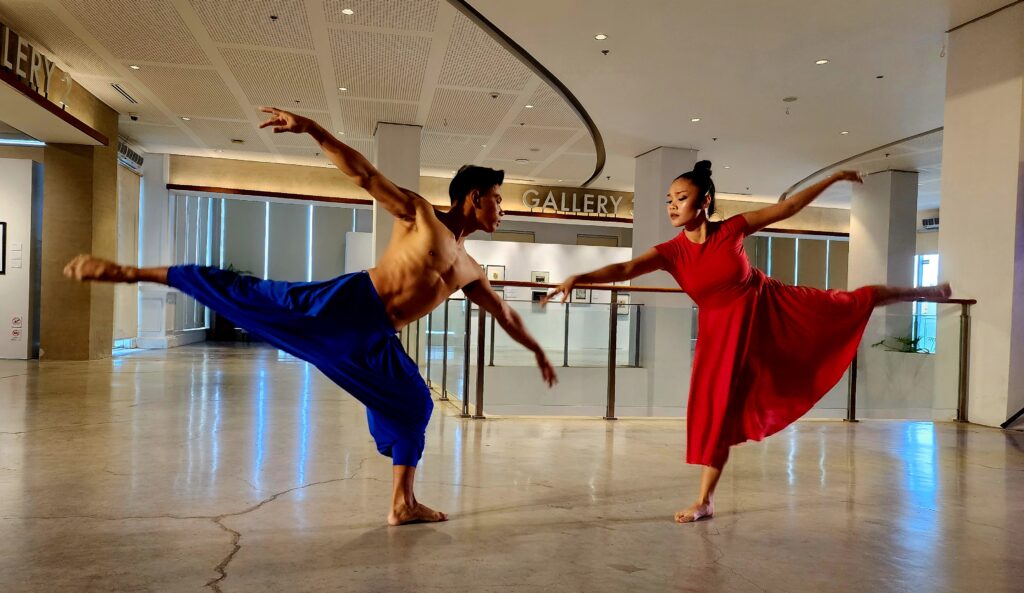Almost a hundred artists and performers converged at a museum in Iloilo City in Western Visayas in the first weekend of February to impart insights, to dance, to present poetic works, to stage theatrical pieces, to celebrate creativity, synergizing with the Pasinaya: The CCP Open House Festival 2024, which was held at the Cultural Center of the Philippines Complex in Pasay City and also in Tagum City in Davao del Norte.
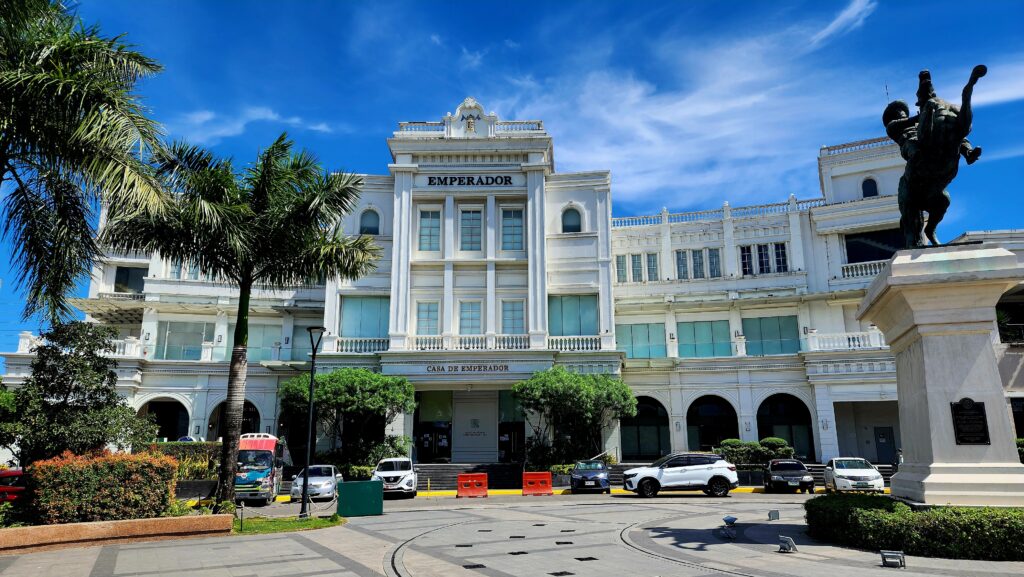
For the first time in its 20 years, the Philippines’ largest event focusing on the different arts and other creative expressions held extension events outside of Metro Manila, partnering with local cultural institutions and art communities.
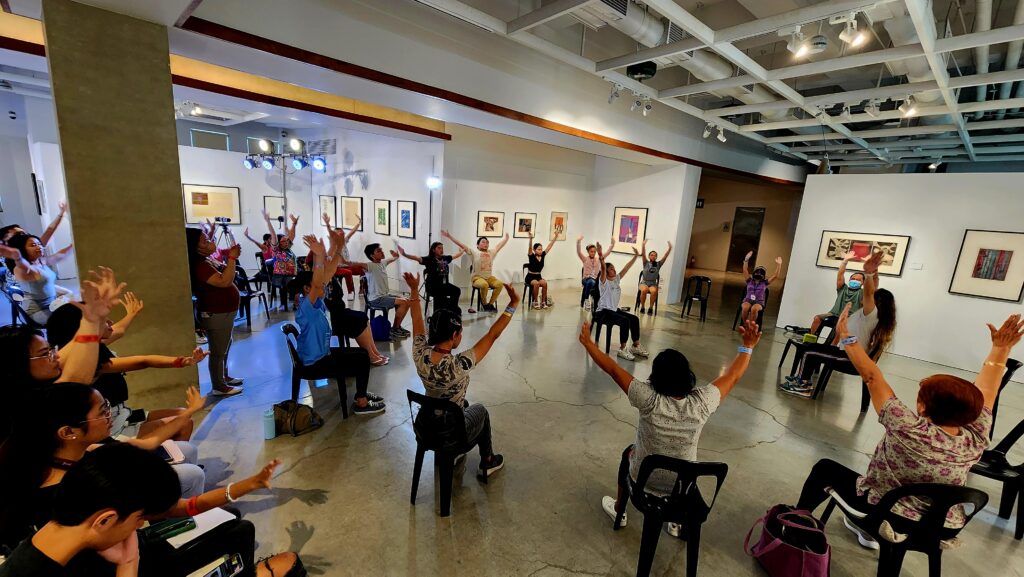
The Pasinaya Festival, held in the first part of the year, started out as a showcase of the different resident companies of the CCP, providing a glimpse of their offerings for the year. Over time, it grew in scope with a wide array of performances and activities in the different fields of the arts, aptly as February is celebrated in the country as National Arts Month. It is known for its scheme of a one-time donation of a small amount to be able to enjoy all of the events.
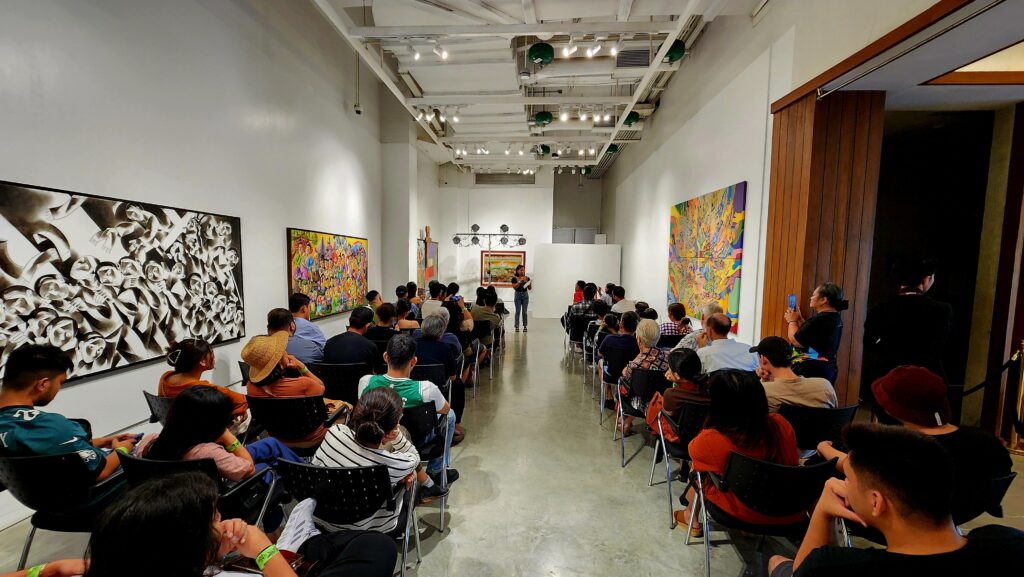
Last year, the festival attracted close to 40,000 attendees who went to its several components that included Palihan (workshops), Palabas (shows), Palitan (gatherings and interactions) and Paseo Museo (tour of museums, galleries and cultural spaces). CCP was able to garner a total of P253,514 in donations.
This year, as the cultural sector continues to move forward from the challenges and lockdowns of the coronavirus pandemic that began in 2020, the Pasinaya Festival bannered as its theme, “Sulong,” a Filipino word that means “to move forward,” to signify the sector’s resolve to forge on, progress and push boundaries.
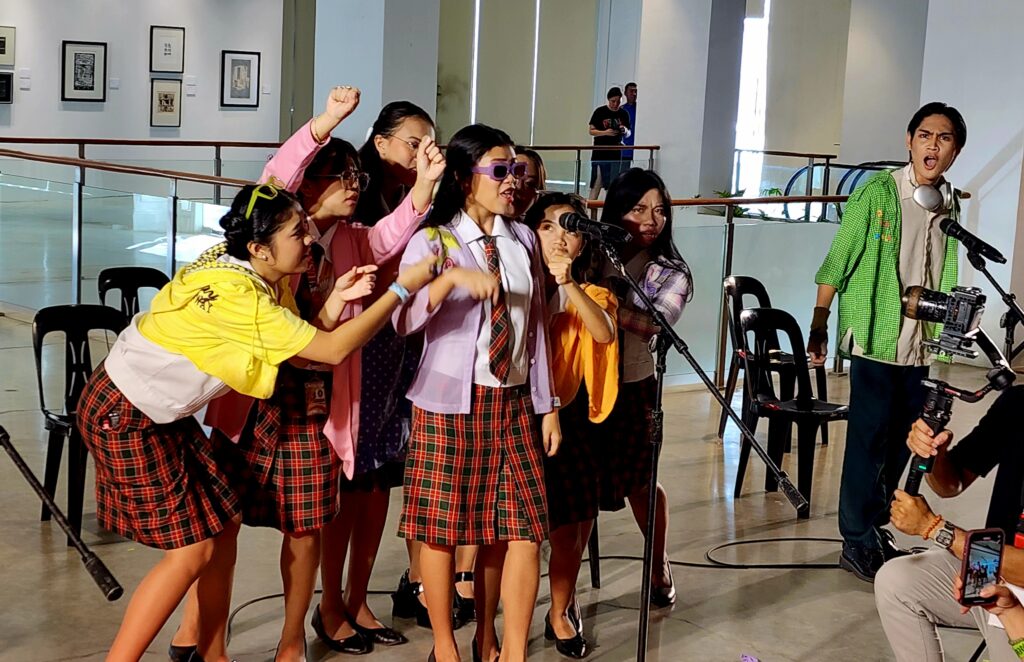
One of the indications of the Pasinaya Festival’s progress this year is that parts of the celebration were held outside of the National Capital Region. It was considered very apt that Iloilo City became one of first two places to hold Pasinaya events.
The city in central Philippines, which many regard as one of the most beautiful in the country, is a cultural hub with its many museums and educational institutions. Recently, it joined the Creative Cities Network of the United Nations Educational, Scientific and Cultural Organization or UNESCO as a Creative City of Gastronomy because of its culinary heritage. Iloilo City is also popular for the Dinagyang Festival, a recently created touristic event organized by the local government whose thematic inspiration is drawn from the old and traditional Catholic and folk practice of the Feast of the Santo Niño, which is celebrated almost at same time. More importantly, local artists, writers and filmmakers have been active in holding events.
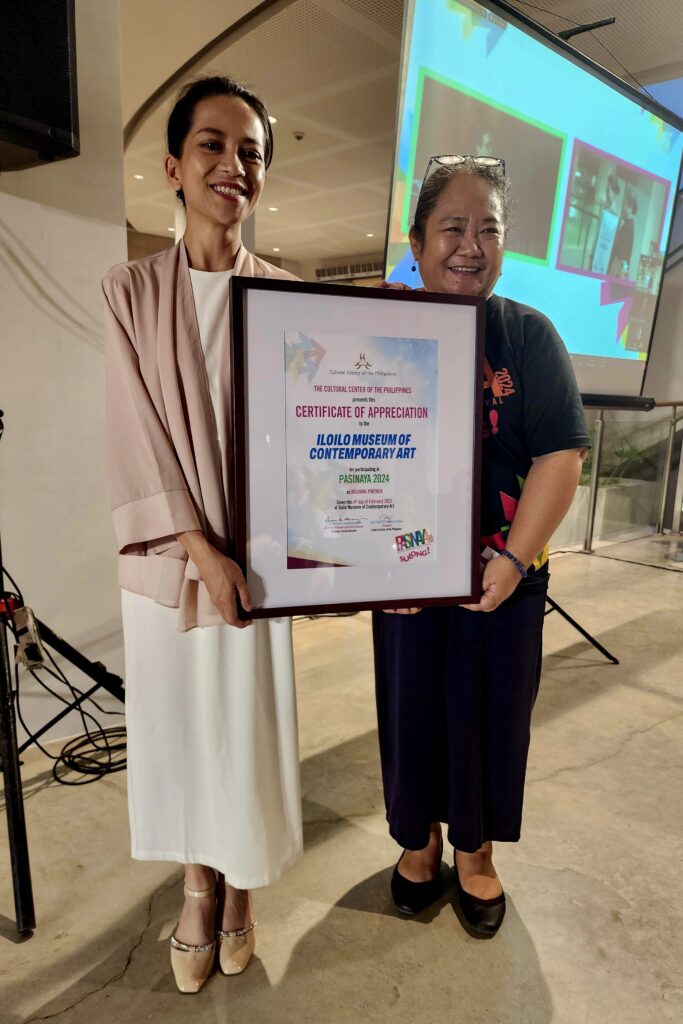
“Iloilo has a very vibrant art scene,” affirmed Maricel Patricia Montero, director of the Iloilo Museum of Contemporary Art.
She added she was glad that they were able to join festival this year. The partnership with CCP for Pasinaya germinated when a traveling exhibit of the country’s premier cultural institution, “Potential, Potency, and Women Printmakers: Selection of Prints from the CCP 21st Century Art Museum Collection,” was hosted by the private museum located in Iloilo’s recently developed commercial area in the district of Mandurriao.
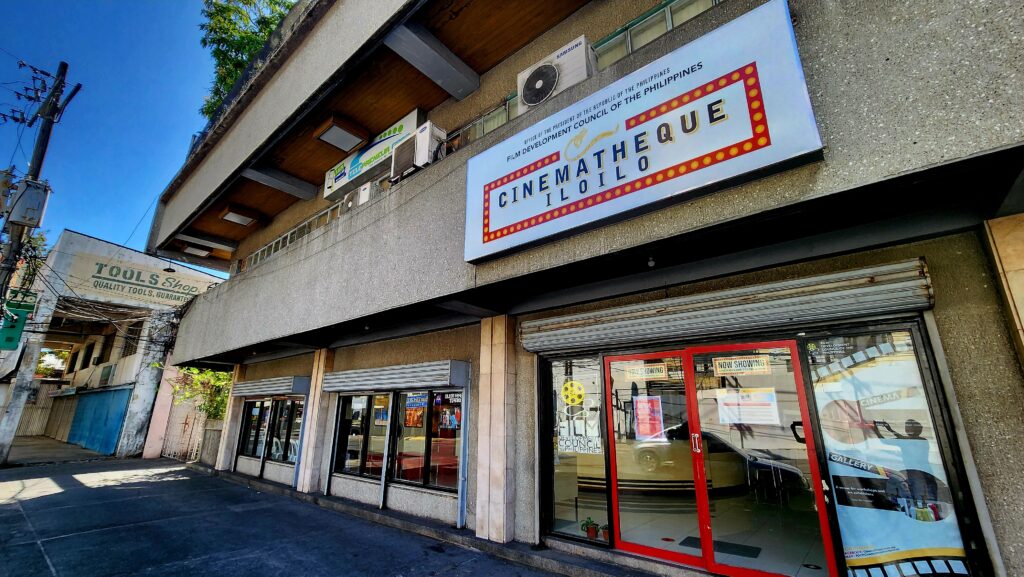
“It has been long overdue for the CCP to extend its reach to the various regions of the country for its projects. Thus, discovering that there’s an Iloilo leg of Pasinaya this year brought me immense joy. At last, Ilonggos will have the opportunity to experience it firsthand,” said professor, writer and publisher Noel Galon de Leon, who was one of the participating artists of the festival.
With a few months to prepare, ILOMOCA was able to craft a program that was included in the Palabas, Palihan and Paseo Museo components of the Pasinaya Festival. All activities were held at the ground-floor Hugot Gallery, which is a venue for changing exhibits, and the second floor of the museum that is housed inside the Casa de Emperador building of the Festive Walk Parade.
The first day of the Iloilo Pasinaya event, on 3 February, consisted of workshops and talks. De Leon’s talk, “Bálay Binaláybay Starter Pack,” opened the festival. The member of the Hubon Manunulat, a group of Western Visayan writers, actually focused on the luwa or lo-a, the often ribald, short folk verse once popular around Panay Island, drawing from Dr. Amorita C. Rabuco’s book Folk Poetry: The Lo-a.
In “Tugma, Tugma… Pa’no Ka Ginawa?” Al Gonzales tackled the basics of writing poetry.
Filipino-Australian choreographer and dancer, who hails from Iloilo City, Novy Japitana Bereber conducted “Sayaw for Parkinson’s Disease,” a movement workshop designed for people with Parkinson’s disease. Non-sufferers though could join the class, deemed to be therapeutic, and museum-goers were invited to participate in the demo.
This was followed a contemporary dance class by Chino So.
The second day was full of performances, starting with modern dance pieces by the Bereber Dance Theatre, a contemporary dance company established by Bereber in June 2019, including “Las Tres Marias” with three powerful women meeting and competing on the Field of Love; “Mother,” depicting a mother trying to survive and raise her children on her own; “Pugday,” a Hiligaynon word meaning “to break into pieces” as a result of a blow; “Promise Me,” about the deep emotional connection between two lovers while being physically apart; and “Nosi Ba Lasi,” about a dancer who continues to dance despite cynics trying to bring them down.
On the other hand, dancers from the 40-year-old Claravall-Gonzalez School of Classical Ballet performed “Saulog” (Celebration), a series of ballet pieces.
Another dance piece, “Duwa-Duwa” (Two), was presented by the Balay-Bugay Creations of Balay-Bugay Dance Studio.
Tin Buenavista, Kim Pillo, Anna Teresa Slater and Hermz Gacho of the group TUGA delivered spoken-word performances, while the Kinaadman Chorale of the John B. Lacson Foundation Maritime University Molo Inc. rendered several songs.
The University of San Agustin Little Theater staged short skit, “#SHOOKT,” tackling mental health especially during the pandemic, while the Living Room Theater of the University of the Philippines in the Visayas presented “SpeakUP.”
Aside from talks and performances, attendees enjoyed the exhibit “Potential, Potency, and Women Printmakers,” which was part of Proven and Printed: ILOMOCA Print Festival. It featured the works of Ambie Abaño, Glenna Aquino, Ivi Cosio-Avellana, Kristen Cain, Imelda Cajipe Endaya, Petite Calaguas, Evelyn Collantes, Yas Doctor, Brenda Fajardo, Ofelia Gelvezon-Tequi, Ileana Lee, Lenore R.S. Lim, Araceli Limcaco-Dans, Hershey Malinis, Flora Mauleon, Caroline Ongpin, Henrielle Baltazar Pagkaliwangan and Imelda “Impy” Pilapil.
Aside from ILOMOCA, the Film Development Council of the Philippines also joined the Pasinaya Festival for the first time with its Cinematheque Centres in Manila and Iloilo becoming among the stops of the Paseo Museo.
The Cinematheque Centre Iloilo, located in the old city center, opened its gallery that displayed works by students and screened short films including “Miss Universe Country 1974” (1974), directed by Jose Mari Avellana; “Mga Ulap Tayong Nagiging Ulan” (2021), directed by Demetrio Celestino III; “Ang Magkakahoy” (1989), directed by At Maculangan, Noel Lim, and Teddy Co; “Salvi” (2012), directed by TM Malones; “Wishes,” directed by Danica Sy; “Grace,” directed by Alliah Padre, Michael Colarino, and Ivan Caraon; “Roundtrip to Happiness,” directed by Claudia Fernando; “RRRWGHHRW” (Carabao Noises), directed by Janela Dela Peña; “Sibuyas ni Perfecto,” directed by Januar Yap; “Arena,” directed by Nicole Yvonne Lee; and “Mga Handum nga Nasulat sa Baras” (The Dreams That are Written on the Sand), directed by Arlie Sumagaysay and Richard Salvadico.
The Pasinaya Festival concluded at the front lawn of the CCP with a rousing finale show, participated in by the Iloilo and Tagum contingents who set up viewing parties. CCP vice president and artistic director Dennis Marasigan revealed that 44,115 people attended the festival at the CCP while 656 people attended the events in Iloilo.
“Thank you to the Cultural Center of the Philippines for making ILOMOCA one of their regional venues for this year’s Pasinaya. We are honored to be part of this annual arts festival to kick-off the National Arts Month. How lucky for us Ilonggos to witness performances and activities by talented llonggo artists in one space. ILOMOCA will continue to support and promote the culture and arts programs in lloilo,” Montero said in her speech. “Madamo gid nga salamat (thank you very much), and hopefully, we will do this again next year.”
“The recent Pasinaya event has undeniably showcased the vibrant arts scene of Western Visayas, particularly in Iloilo City. Moving forward, I hope that in the upcoming Pasinaya editions, they will expand beyond Manila and take their events to various regions across the country to introduce this beautiful project. It’s high time to highlight the exceptional artistry from our regions, often marginalized in such occasions, such as during the Arts Month celebration,” De Leon remarked. “I hope there will be more extensive research into the unique dynamics of each region to better tailor art-related events.”
Montero hoped that Pasinaya events can also be held in other venues such as schools. De Leon likewise espoused utilizing unconventional venues.
“Next year, I wish for Pasinaya in Iloilo to explore more thoroughly our plazas, historic downtown areas, and alternative spaces like jeepney terminals or markets as art space, too,” he said.
